A faculty for the whole team
As the newest dental faculty at the Royal College of Surgeons of Edinburgh turns a year old, director Dr Sarah Manton talks about its inception, role and plans for the future
Taking the helm of a new dental faculty, which also happens to be the first of its kind in the UK, is no short order, but Dr Sarah Manton seems to have taken it all in her stride.
The Faculty of Dental Trainers (FDT) at the RCSEd launched in September 2016 after it was recognised that there was currently no ‘home’ for dental trainers.
“These days you are very accountable to regulators and to the service, but first and foremost, you are accountable to patients for their safe care. Not only do trainees have to be trained so that they are competent at the tasks or treatments required, they also have to be consistent in how they perform them.
It is for anyone who is involved in training in dentistry – we felt it was important to have a faculty for the whole team
Dr Sarah Manton, Faculty of Dental Trainers
“So, if you have got to have clinicians who are trained to perform set competences, then why don’t you have to have trainers who can demonstrate and prove that they are competent to train and are accountable, just as trainees are accountable?”
A survey of dental trainers, conducted by the RCSEd in March 2015, found that many felt there was a lack of recognition for their input into dental training or for rewarding training.
Sarah said: “Enough time needs to be built into individuals’ job plans and work routines for there to be confidence that all the standards for training programmes are being met and that the public can be assured they are being treated by clinicians who are fit for purpose.
“We thought that if we created a faculty where like-minded people could come together, having had the evidence of their experience recognised and externally validated – particularly by their peers – this would help them develop their roles, achieve recognition in the workplace, help with their appraisal, help with their 360 degree peer review, help with validation processes, help support job applications, help gain training posts etc., and also give them somewhere to go for relevant and specific CPD for dental trainers.”
Route to the RCSEd
Despite growing up in Guildford, Surrey, Sarah chose to head to Edinburgh to study, a city she was more than familiar with, having visited numerous times to stay with relatives over the years. After graduating in 1975, she undertook a PhD in breast pathology before taking up a post as a registrar at the dental school in Edinburgh. After that she moved to Bristol where she became a lecturer in oral medicine and periodontology as well as carrying out her senior registrar training – which at the time was the equivalent of StR training – in restorative dentistry.
Her next move involved a return to Scotland in 1994, this time to Dundee where she became a special care dentist in her new role as dental services manager for the community dental service. During this time she also undertook specialist practice in perio after gaining her place on the GDC’s list. She is also on the specialist lists for restorative and special care dentistry.
Although she had taken her fellowship for the RCSEd in 1985, it wasn’t until 1994 that she became more formally involved with the Royal College itself. She was a member of the Specialty Advisory Board for Additional Dental Specialities between 1998 and 2006, and became chair of the Specialty Advisory Board for Oral Medicine and Special Care Dentistry in 2007. She has been an elected member of the Dental Council since 2007 and is currently in her second term. It was during this term that she was nominated to become vice-dean of the council.
Although retired from her consultant post in Dundee, Sarah is still engaged in specialist practice in Cupar, in Fife, and Aberdeen. She is also the current chair of the BNF Dental Advisory Committee.
She came on board midway through the setting up of the FDT, initially as project lead and then, after a formal application and interview, was appointed as the new faculty’s inaugural director. The FDT was officially launched in September last year and sits alongside its sister faculty in the college, the Faculty of Surgical Trainers (FST), which has been established for a number of years.
Inclusive
Sarah explained that one of the things that makes the FDT stand out is the fact that it is aimed at the entire dental team, which she believes is another first for the RCSEd.
She said: “It is for everybody who is involved with training in dentistry. They are going to be able to join the same faculty – we felt it was very important to have a faculty for the whole team. We recognise that everyone has a different role in the team and you are only as strong as your team members.”
When setting up the faculty, Sarah explained that there were comprehensive discussions about who would be eligible to join and what constituted a dental trainer. She said: “In undergraduate training you might have some individuals who only spend a session a week doing training alongside others who are actually driving a curriculum and its development. Predominantly, the faculty rewards postgraduate training but, if you have a significant role in undergraduate training, then we are going to look at that as well.
“We are very keen that, for example, if you are a GDP in primary care, while you can’t have the same training role within your sphere of practice as someone who is appointed as a lecturer or a senior lecturer in a teaching hospital, you may have a significant role because you might, for example, be a VT trainer, or be active in committee work involving training at various levels. You might have been appointed to do teaching at undergraduate level at a hospital because you are good at your job and you have excellent clinical skills.
“Equivalent seniority in the various different settings of dental training are going to be rewarded. So, if you are a DCP and you are training other DCPs, have a significant role in a national society, are involved with curricula change, or with developing postgraduate exams, all that type of activity counts.”
Developing the strategy
The FDT has put together an over-arching strategy group that includes a number of individuals pulled from different groups within the profession who are all interested in driving and shaping the work and direction of the faculty. Alongside this, there will be several sub-groups looking at specific areas that the strategy group has deemed important or necessary.
Sarah said: “One of these will be our standards for dental trainers document. The surgeons have already addressed this and they have published their standards for surgical trainers. We want to see how we can develop these for our faculty.
“One of the main reasons for the FDT is patient safety. It is absolutely imperative that the public has confidence in dentistry and that the safety of patients is maintained so that they know that the people who come into the workplace have been trained to a consistent standard and can do the job that is required. And that those who have trained them are equally qualified to do the training. We owe that to the public; we owe that to regulators; we owe that to employers, and that is a big driver for the faculty.”
Another area that the faculty is working on is non-technical skills courses for dentists and DCPs. Sarah said: “The emphasis in training so far has really been on demonstrating a particular skill, such as an injection. The trainer will look and see you give the injection and do a workplace based assessment on that. What the recognition of non-technical skills means is that there is more to just being able to do the task or having the knowledge to do the task.
“So, we are looking at things like your communication skills and decision making, your situational awareness, your team working, what you might do if things get a bit critical, and how you might lead that team. These are non-technical skills and we are looking to develop these for the whole dental team.”
Sarah pointed out that, while the FST has a similar programme, it is different for the dental profession. “For the surgeons, in many ways it is more straightforward,” said Sarah, “because they are in an operating theatre and they have an operating team, whereas for dentists there are various different environments. So, we have to look at all this and develop appropriate courses for dentists and DCPs.”
Building the membership base
One of the main aims in the short term is to grow the faculty and raise awareness among the dental profession about its presence and its aims and objectives. The FDT recently welcomed its 100th successful applicant (see page 10). There are fellows, members and associates who have signed up and the faculty has also welcomed its first DCP fellows.
Sarah said: “You can join at any level, so if you are interested in teaching and training you can join as an associate at any stage. You could be two-years post qualification, for example, and you might be involved in some undergraduate supervision or be interested in taking on some training or teaching now or in the future.
“When you join as an associate, all you need is a letter of support from a peer or a clinical trainer to say that you are interested in training and what your activities have been. You can then work towards becoming a member or a fellow, when, if successful, you are also awarded post nominals. The information on how to join is on the RCSEd website and you can apply for entry at any level. To become a fellow, you need two references from your peers to support your application.”
Sarah explained that they are driven by the ambition to make the membership as diverse as possible, and to develop a balance of voices and experience within the faculty. She said: “What we really want is for individuals to have shown and demonstrated by the evidence on their applications that they are seeking to be, or are, leaders in their field and that they are very active, but also want to get involved. We are not looking for people who may be demonstrably very senior, but whose working roles do not involve a strong commitment to teaching and training. We also want to welcome people who are at a starting point – an associate who wants to become a member, a member who wants to become a fellow.”
Planning to succeed
Sarah acknowledges that, as the first dental training faculty in the UK, there is a certain amount of pressure on them to succeed, but she is determined that “we have got to make it work and we will make it work”.
She continued: “It does help that the surgical trainers have already paved the way to a certain extent with their faculty and this is really useful.”
And, she believes that the openness and opportunity that the FDT provides will prove to be attractive for dental professionals the length and breadth of the UK. She said: “We intend it to be open to anybody and hope that people want to take advantage of the opportunity.
“It’s important to get some external validation and recognition because, in the workplace, very often you can’t prove what you do. You might be putting a huge amount of effort into something and there is little encouragement or no tangible reward. Sometimes, there might be a lack of appreciation or a feeling that your efforts are taken for granted.”
With a joint conference with the FST coming up in Birmingham in October (see Time to Train, right) and plans to release a range of resources on the FDT website, the next few months will be a busy time for the fledgling faculty. However, Sarah and her colleagues are determined to make their mark and make sure that the faculty is recognised and flourishes over the next few years and into the future.
She said: “At the end of the day, the basic need of the FDT is to protect patient safety. That is the key role of the dental team and of this dental faculty.
“So, we are working hard to make sure that we are the ‘go to’ faculty for resources on dental training and advice.”
Time to train
The Faculty of Dental Trainers at the RCSEd is joining forces with its sister faculty the Faculty of Surgical Trainers for a one-day conference in Birmingham on 4 October.
Sarah explained the reasoning behind the conference theme, ‘Time to Train’: “What we are addressing here is the issue of whether people get enough time to train. One of the problems that came up in our survey was that people might feel very competent in the clinical skills that they are teaching but they are not particularly confident or reassured that they are allowed the time to do the teaching or training and give trainess and students feedback.
“We’d like to see each trainer develop a personal trainer’s portfolio, so that they can reflect on what they are doing and demonstrate their activities by including, for instance, examples of some of the assessments they have done with trainees. I think it is a problem that some authorities or employers expect to employ people who are fit for purpose, but they are not necessarily prepared to invest in the time required, or what is required to achieve that goal, and this includes the time that is required by experienced staff to undertake examining trainees at the end of their training programmes.”
The reason the RCSEd event is being held in Birmingham is that most of the college’s membership is actually based south of the border; so the Birmingham venue is accessible for delegates from all corners of the UK.
The programme for the FDT will feature a number of workshops, including one on developing non-technical skills courses.
She said: “We are going to ask the delegates to comment on our progress so that they have an input into our documents. We will also be asking them for an input into how they would like to see the faculty develop for them, what benefits they would like and how they would like to see the dental team integrated, rather than us telling them how it is going to be.
“We are very keen to hear from anybody who wants to help and be involved.”
For more information, visit fdt.rcsed.ac.uk/2017-conference/
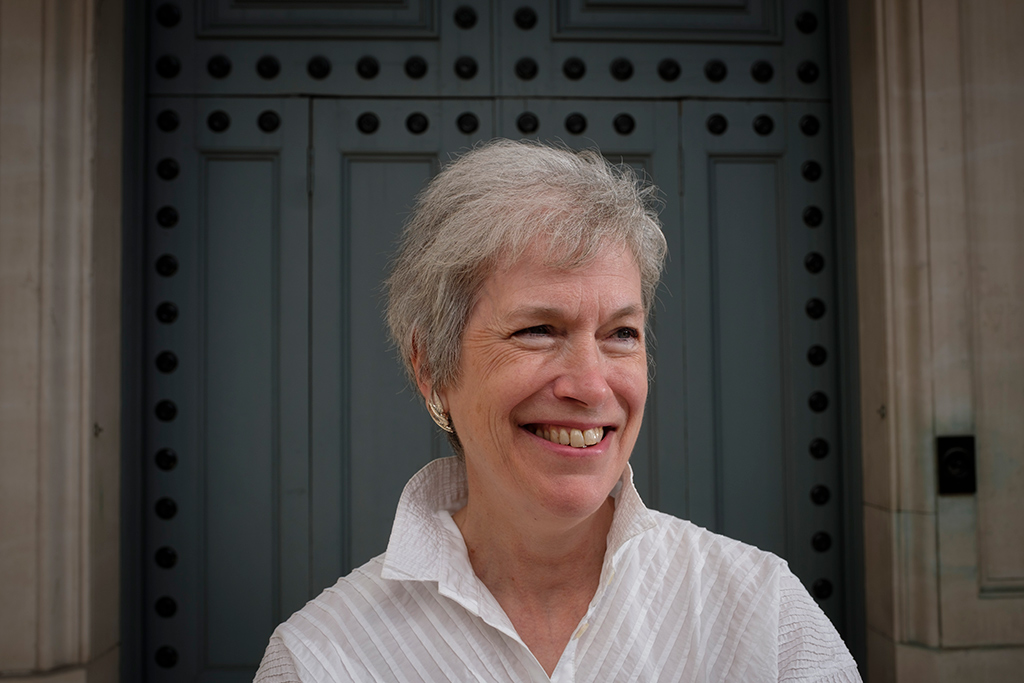
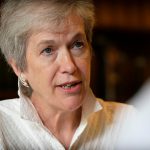

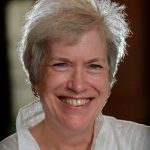
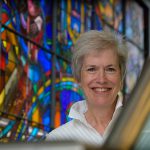
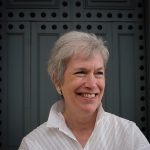
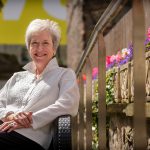
Comments are closed here.